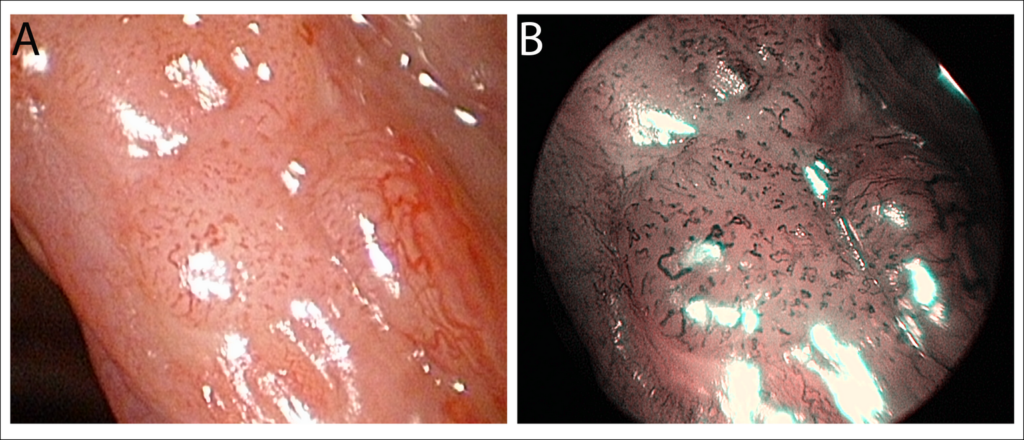High Definition Endoscopy with Narrow Band Imaging (NBI)

-
Understanding Capsule Endoscopy: A Look Inside Your Digestive Tract
Capsule endoscopy is a valuable diagnostic tool used by gastroenterologists to examine the small intestine, a region not easily accessible with traditional colonoscopy procedures. At Gandhi Hospital in Aurangabad, Dr. Ashish Gandhi, our experienced gastroenterologist, can determine if capsule endoscopy is the right approach for diagnosing your digestive concerns.
What is Capsule Endoscopy?
This innovative procedure involves swallowing a tiny pill-sized capsule containing a wireless camera. As the capsule travels naturally through your digestive tract, it captures thousands of images of the internal lining. These images are transmitted to a recording device worn on your waist, allowing Dr. Gandhi to examine your small intestine for abnormalities.
Benefits of Capsule Endoscopy:
Capsule endoscopy offers several advantages for diagnosing various digestive conditions:
- Examining the Small Intestine: Unlike colonoscopy, capsule endoscopy provides a clear view of the entire small intestine, which is often difficult to reach with other methods.
- Identifying GI Bleeding Sources: For unexplained bleeding in the small intestine, capsule endoscopy can pinpoint the exact location, aiding in diagnosis and treatment planning.
- Detecting Tumors and Abnormalities: The procedure can also help identify tumors, ulcers, and other abnormalities within the small intestine.
- Polyp Screening and Disease Diagnosis: Capsule endoscopy can be used for polyp screening and diagnosing various conditions like Crohn’s disease and celiac disease.
Capsule Endoscopy Procedure:
The capsule endoscopy process is relatively simple:
- Preparation: You’ll need to fast for at least 8-10 hours before the procedure to ensure an empty stomach.
- Recording Device Attachment: A technician will attach a recording device to your abdomen to capture the capsule’s transmissions.
- Capsule Ingestion: You’ll then swallow the capsule, which will naturally travel through your digestive system for approximately 8 hours, capturing images along the way.
- Capsule Elimination: The capsule is disposable and will be eliminated through your stool. You can resume fluids a few hours after swallowing the capsule and gradually progress to light food.
Risks and Complications:
While generally safe, capsule endoscopy carries minimal risks:
- MRI Scan Avoidance: It’s crucial to avoid MRI scans while the capsule is still in your body, as the magnetic field can damage the device.
- Potential Blockage: In rare cases, the capsule might not pass naturally and could cause a blockage. Dr. Gandhi will monitor your progress and may recommend waiting for natural passage or removing the capsule through traditional endoscopy or surgery if necessary.
